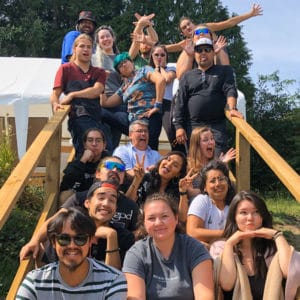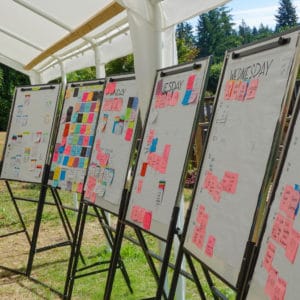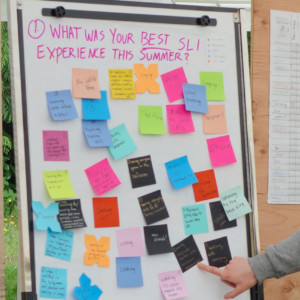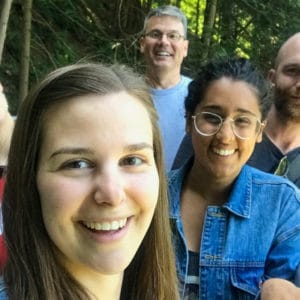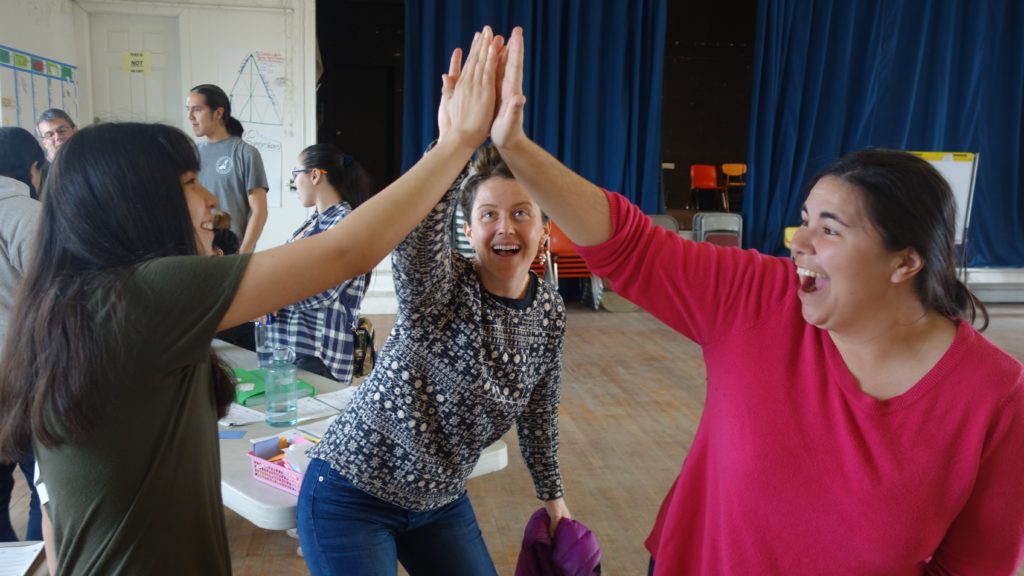
My favorite thing from the 2017 Summer Language Intensive on St. Paul Island was becoming more comfortable learning and teaching language in immersion, by which I mean staying in the target language and avoiding English.
In the past, I tended to divide language learning and language use. There is an essay by Greg Thomson, “Leave me alone! Can’t you see I’m learning your language?” that captures this tendency to avoid speaking to people in a new language, which can be intimidating, in favor of studying the language in isolation. Perhaps many people can relate to this tendency. I remember that when I lived abroad, I sometimes stayed in the safety of my home to flip flashcards in Spanish or listen to recorded Turkish dialogues, rather than go out and try to use the language. When I did speak to people, I tended to see those interactions as a chance to use whatever language I had mastered, rather than an opportunity to learn more.
The occasions when I could overcome this division between learning and interacting occurred when I met with language exchange partners, something I have done for about ten years. Language partners have an explicit agreement to help each other learn, and so I felt comfortable telling my language partners to slow down, repeat, and talk about specific things. The shift with WAYK, I see, is to make everyone your language partner, so that you can always be learning, or always be teaching. Such a shift requires mastery of certain skills and techniques.
Thanks to the summer language intensive, I have been able to learn some of these immersion techniques through observation, reading, explicit instruction, and practice.
I remember sitting in the Civic Center early in the summer and watching Susanna “hunt” chinuk wawa from Evan. She stuck to conversation at her level, played with paper and scissors and wooden sticks to create props that guided the vocabulary, and asked for repetitions and variations to ensure she understood. She didn’t take notes or leave with homework. This observation was very helpful for me to see what learning with a focus on oral fluency could look like, all without English. Likewise, the ease with which the local Unangam Tunuu local team stayed in immersion while hunting me for Turkish made me go, “Oh!” I saw that being an informant in the language versus a teacher of the language helped them learn at the right pace and with enough repetition for them to truly improve their fluency.
Reading past blog posts on the WAYK website helped me understand some of the philosophy and decision-making that guides WAYK-style immersion learning. David Edward’s “There is No Why” post was especially useful. It articulates the three rules of the TQ: Law of the Jungle – stay in the target language no matter what, correct my mistakes when you understand what I’m trying to say, and use simple but complete sentences – and illustrates how they helped David improve his French fluency quickly.
At the St. Paul Civic Centre, we received explicit instruction for dozens of techniques, but we took the time to do activities on a few key ones, including TQ: Set Up, TQ: Prove It, and TQ: Make Me Say Yes / Make Me Say No. We practiced arranging props and actions to show our intended meaning and doing the same to prove that we understood what was going on. We practiced going around the Circle of Questions to elicit questions, positive answers, and negative answers. These foundational skills helped me slow down during immersion learning to ensure that I was actually learning, and not just faking my way through by nodding along.
Finally, I have had lots of
Thanks to all of these experiences, I am looking forward to improving my fluency in languages with speakers, rather than performing knowledge for them. I also look forward to sharing WAYK’s immersion techniques to support the learning and teaching practices of others, be it through language exchange programs, classroom education, tutoring, or indigenous language revitalization work. I am grateful to have learned from so many people this summer, including Evan and Susanna, the Unangam Tunuu Speaking and Listening Teaching Team, and my fellow interns.
Post authored by Mary.

